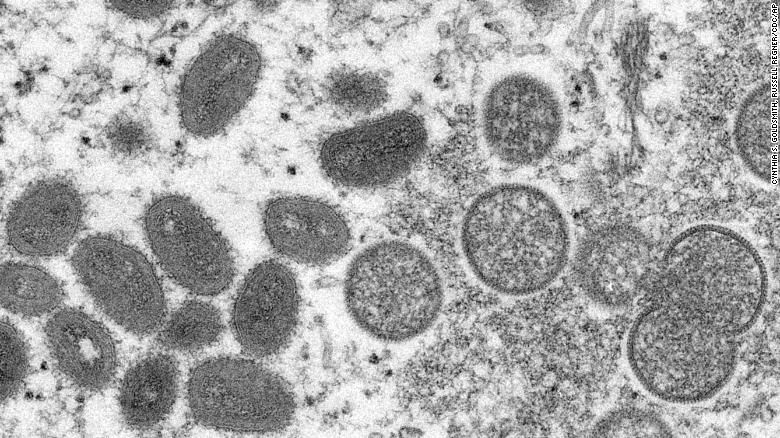
Monkeypox Outbreak: What We Know
If you have headline fatigue after more than two years of the COVID-19 pandemic, you may be reluctant to delve into learning about another emerging viral outbreak. However, it’s important to understand the general situation when it comes to the current monkeypox outbreak so that you can proceed with calm, confidence, and the ability to anticipate future developments.
Here’s what you need to know about the current monkeypox outbreak, including its global spread and public health implications.
What Is Monkeypox?
Monkeypox is a rare disease that has been on the radar of scientists for more than 60 years. It is thought to have originated in monkey colonies and was first discovered to have infected a human in the Democratic Republic of Congo in 1970, according to the U.S. Centers for Disease Control and Prevention (CDC). The monkeypox virus is in the same family of viruses as the virus that causes smallpox. However, monkeypox disease is not as severe as smallpox.
Where Is the Current Monkeypox Outbreak?
Monkeypox disease is occasionally reported in African countries. However, a new outbreak seems to have been transmitted beyond Africa, which is unusual. As of the third week of June 2022, countries such as the United Kingdom, Spain, Portugal, Canada, Germany, and the United States have all reported cases of monkeypox disease, though case counts are relatively low (64 cases in the U.S., for example).
How Does Monkeypox Spread?
Because monkeypox disease is relatively rare, scientists are still learning about how it is transmitted from one person to another. The most common way that it seems to spread is through direct contact (touching a monkeypox sore, or handling items that may have touched a sore). It is also spread through some bodily fluids like saliva or respiratory droplets; however, experts are uncertain whether it can be spread through semen or vaginal fluids.
What Are the Symptoms of Monkeypox?
Like many other viral illnesses, monkeypox disease begins with constitutional symptoms such as fever, headache, fatigue, and muscle aches. People infected with the monkeypox virus will also have swollen lymph nodes. After the fever appears, it can take a few days for the characteristic pox-like rash to develop. As the rash appears, it does so in stages, progressing from flat lesions to raised bumps, to fluid-filled blisters that then scab over. The time it takes to experience symptoms after being exposed to the virus ranges from 5 to 21 days, according to the CDC, and symptoms can last for 2 to 4 weeks.
How Are Public Health Experts Monitoring the Outbreak?
Public health experts are closely monitoring the current monkeypox outbreak, particularly because cases have appeared in uncommon places. Similar to how experts have tracked the SARS-CoV-2 virus that causes COVID-19 illness, experts are particularly interested in tracing the virus through social networks to identify who may be most at risk of contracting the disease. So far, it seems that men who have sex with men are disproportionately affected by the virus in the U.S. However, because case counts remain low, more data is needed and everyone needs to be aware of the virus, regardless of gender or sexual orientation.
What To Expect With the Monkeypox Outbreak
Because the monkeypox virus has spread on a global level, it is likely that more cases are occurring than have currently been identified. For this reason, you may expect to hear about rising case counts as the virus is more readily detected by healthcare providers. You may also hear more about atypical presentations of the virus, the evolving genetic makeup of the virus, and plans to expand viral testing.
Who Should Get Vaccinated?
There are many ways to protect yourself against the monkeypox virus, including avoiding contact with humans or animals that may have the virus, avoiding contact with materials that have contacted sick humans or animals, and practicing good hand hygiene.
Currently, two vaccines are also approved by the US. Food and Drug Administration (FDA) that can help prevent monkeypox. The CDC currently recommends that people who face potential occupational exposures to the monkeypox virus (such as certain clinical lab personnel, research lab workers, military personnel, or healthcare or public health professionals) receive a vaccine.
How To Learn More
While monkeypox is being traced because of abnormal activity, rest assured that this virus is a lot different from the SARS-CoV-2 virus that causes COVID-19. The CDC notes that ‘’the threat of monkeypox to the general U.S. population remains low.”
To learn more, check out the latest updates here.
Research and materials for this article were compiled, written, and distributed on behalf of the National Public Health Information Coalition. The views and opinions expressed in this blog are those of the various authors and do not necessarily reflect the official policy or position of the National Public Health Information Coalition or its members.
References:
[1] Monkeypox. https://www.cdc.gov/poxvirus/monkeypox/index.html
[2] 2022 Global Map and Case Count. https://www.cdc.gov/poxvirus/monkeypox/response/2022/world-map.html
[3] Signs and Symptoms of Monkeypox. https://www.cdc.gov/poxvirus/monkeypox/symptoms.html
[4] Transmission. https://www.cdc.gov/poxvirus/monkeypox/transmission.html
[5] Monkeypox in the U.S. https://www.cdc.gov/poxvirus/monkeypox/outbreak/us-outbreaks.html
[6] Prevention. https://www.cdc.gov/poxvirus/monkeypox/prevention.html
[7] Multi-country monkeypox outbreak: situation update. https://www.who.int/emergencies/disease-outbreak-news/item/2022-DON392
[8] What the surprising mutations in the monkeypox virus could indicate about the new outbreak. https://www.statnews.com/2022/06/02/mutations-in-monkeypox-virus-explainer/
[9] Plans underway to ramp up monkeypox testing if outbreak grows quickly. https://www.cnn.com/2022/05/30/health/monkeypox-testing-plans-us/index.html
[10] Vaccine Guidance. https://www.cdc.gov/poxvirus/monkeypox/clinicians/smallpox-vaccine.html

